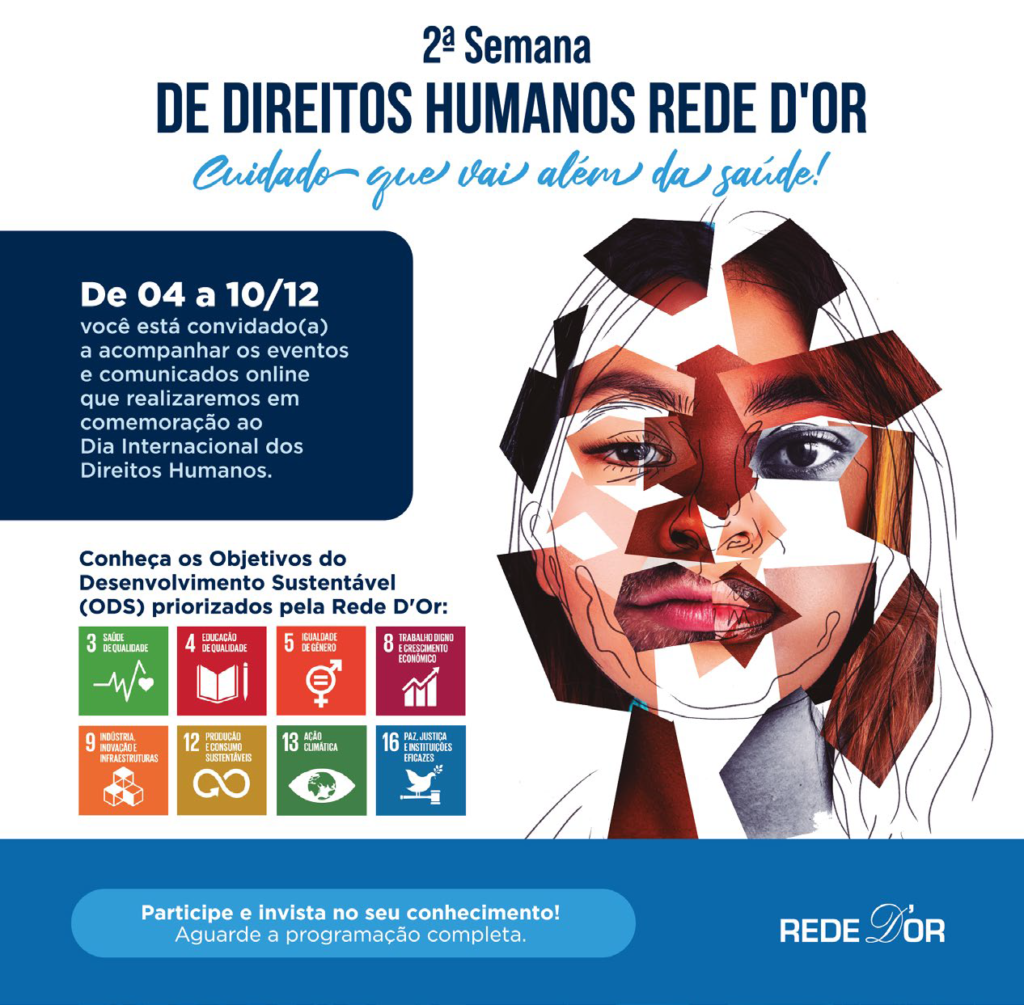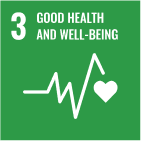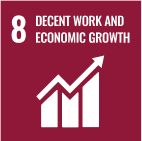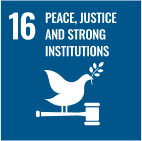sdg:
sdg:
-
3
-
4
-
8
-
12
-
13
-
16
Supply chain
GRI 2-6, 3-3
By definition laid down in our internal regulations, our supply chain comprises suppliers of materials and/or service providers, both individuals and legal entities [GRI 2-6].
Aware of our role in the relationship with our suppliers, we employ a series of strategies to ensure that the Company’s operations continually progress towards improving environmental, social, and governance practices. Among these strategies is sustainability assessment. By establishing a Supply Chain Risk Matrix, we classify each procurement category and their respective sectors, into high, medium, or low-risk levels considering all ESG and Reputational aspects. According to this classification, we develop an assessment strategy based on risk level [GRI 3-3].
The assessment of low-risk suppliers is based on a self-declaration, while Medium-risk suppliers are assessed through document analysis. High- risk suppliers undergo both the previous stages as well as an audit. Assessments are conducted every one, two, or three years, depending on the supplier’s adherence level. The assessment criteria are supported by methodologies well-established in corporate sustainability indicators market, such as those proposed by the Ethos Institute.
After validating the results, we develop an action plan to meet environmental, social, and governance criteria, prioritizing the development of a sustainable supply chain. We provide the supplier’s detailed results as well as the average results of its category for benchmarking with the score of suppliers in the same activity sector. Additionally, we conduct periodic training sessions to empower suppliers in priority topics identified through assessments [GRI 3-3].
The mechanism for monitoring suppliers’ adherence to good practices, the ESG self-assessment, was implemented in 2021 [GRI 3-3]. The goal is to identify those already advanced in sustainability practices for mapping potential partnerships and, primarily, to ascertain which ones require improvements and how we can contribute to their progress. Considering all direct and indirect suppliers with spending in 2023 (3,881 suppliers), 292 suppliers participated in assessment accounting for 7.5% of the supplier base and 27% of suppliers with active contracts. Divided into high, medium, and low categories, the adherence levels to sustainable practices in the self-assessment were 37%, 57%, and 6%, respectively. In 2023, we began requesting supporting documentation for responses in the self-assessment from a sample of suppliers. Eighty-two suppliers were evaluated.
We also conducted audits to verify compliance and maturity levels regarding legislation and best environmental, social, and governance practices, either by an internal team or bya third-party company. There were 41 audits, equivalent to 31% of high-risk suppliers [GRI 2-25]. Over the last three years, we have had 63 audits, the equivalent to 48% of high-risk suppliers. Considering only contracted suppliers, 58% of high- risk suppliers have been audited during this period. If theESG audit confirms non-compliance with the legislation, the supplier is subject to a contract termination clause [GRI 3-3].
In 2023, we hosted our first event aimed at suppliers— the ‘Best ESG Practices’—featuring lectures by leaders from many departments (Sustainability, Diversity and Inclusion, IDOR, Investor Relations, alongside Sustainable Supplies and Procurement). Besides being an important networking opportunity, we awarded 15 suppliers in different categories of ESG assessment, ESG Projects, and Excellence in Engagement in Rede D’Or Initiatives.
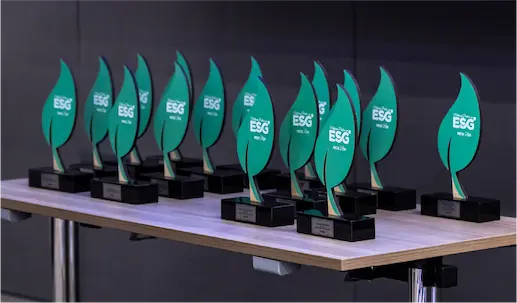
Sustainable procurement
GRI 3-3
In 2023, we continued to make significant progress in sustainable procurement practices. We structured competitive bidding among suppliers using sustainable procurement criteria divided into four scores: mandatory, recommended, desirable, and good business sustainability practices. We developed and piloted questionnaires for suppliers and checklists based on a product life cycle approach to assess the criteria.
In the previous year, we had already seen the department’s progress with the establishment of a Procurement sector, participation in the Sustainable Procurement Challenge initiated by the Healthy Hospitals Project (HHP), and the revision of our Procurement Policy to include ESG criteria.
As part of our training and development initiative, we conducted webinars on sustainable procurement, training over 120 buyers in the past year. At the Rede D’Or Academy, we offered an institutional course on sustainable procurement, presenting the procurement guidelines we aim to promote in our supply chain, such as reducing emissions, waste, and natural resource consumption. In 2023, 859 employees attended such training. To improve our practices, we extended access to the Rede D’Or Academy to selected suppliers, offering 35 courses, including the Sustainability Track and Anti-Corruption training. By the end of 2023, we had 72 suppliers from 42 companies (including 15 high-risk suppliers) registered on the platform.
To bolster our initiatives in partnerships with suppliers, we have developed a channel (access here) for the submission of projects related energy, water, effluents, waste, reverse logistics, circular economy, emissions, health and safety, community relations, diversity, inclusion, education, and capacity building. Suggestions received are evaluated by the Company for subsequent implementation planning. Some success stories from this journey can be found in the chapter Encouraging Good Practices.
Suppliers that participated in ESG self-assessments
Suppliers that participated in ESG audits
GRI 2-25
In the last year we have trained
+ 120
BUYERS
in webinars on sustainable purchasing
859
EMPLOYEES
trained in the Institutional Sustainable Purchasing course
Encouraging good practices
GRI 3-3
Rede D’Or adopts a more sustainable model for disposable curtains
In 2023, we completed the standardization process for disposable curtains across the entire Company. A new fixation model, using adjustable adhesive tapes, was specially developed for Rede D’Or, available in six different sizes. The previously used model relied on plastic hooks for fixation.
Benefits of the new model:
A 17% decrease in the averagecurtain price;
Size standardization, reducing SKUs from 39 to 6;
Uniformity in curtain usage with adjustable adhesive tapes, providing ease of installation and handling;
Removal of logos for uniformity, except for the curtains used in Star hospitals;
Elimination of hooks, preventing the disposal of about 800kg of plastic material per month;
Reduction in the supplier base from 4 to 1.
Privates in mixed fabrics with polyester fibers recycled from PET bottles
Aiming to use recycled materials and use them within hospital activities, we standardized at Rede D’Or, for all regions, toilets made from mixed fabrics with polyester fibers recycled from PET bottles.
In 2023, around
27.590
THOUSAND 500 ML PET BOTTLES
were removed from the environment and, since the start of the project in 2021, there have already been 74,040 thousand.
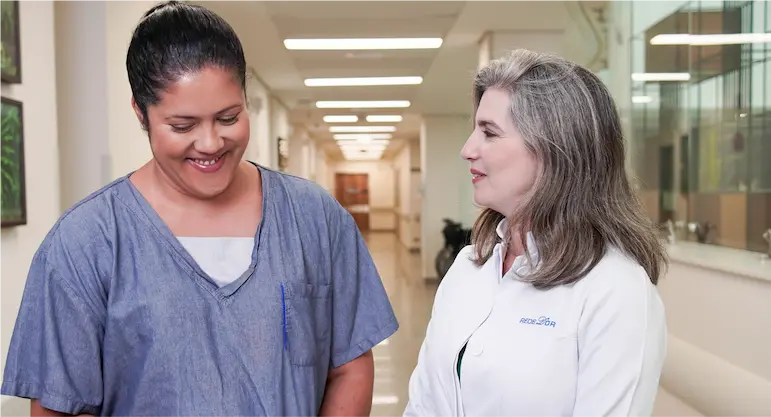
Centralization of Johnson & Johnson deliveries
Centralization of deliveries for 13 hospitals in São Paulo at Rede D’Or’s Embú das Artes Distribution Center using electric vehicles.
Electric fleet
Results of some partnerships with suppliers:
Boston
Since July 2023, 100% of material deliveries in Greater São Paulo have been carried out by the new fleet of electric vehicles. The initiative will be expanded, from March 2024, to Rio de Janeiro and with this we hope to generate a large reduction in CO2, contributing increasingly to our environment.
Our estimated annual impact in Greater São Paulo is a reduction of
590
kg CO2
EQUIVALENT TO 26 TREES.
Molnlycke Health Care
Officially launched in November 2023 in the State of São Paulo, with expansion scheduled for 2024, Molnlycke Health Care is making deliveries using a new fleet of electric vehicles.
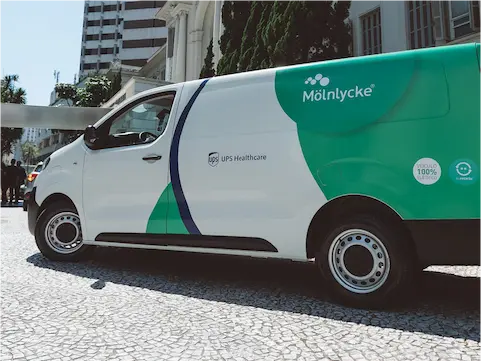
14
DELIVERIES IN THE YEAR
totaling 1,777 km and 545 kg of CO2.
Human rights
GRI 2-21, 2-23, 2-24, 2-25, 3-3, 406-1, 410-1
We pledge the commitment to fostering a diverse, inclusive work environment, free from discrimination, and offering equal employment opportunities. At Rede D’ Or São Luiz we are committed to respecting human rights of all our employees, medical staff, patients, suppliers, outsourced employees and society.
Our Human Rights Policy, applicable to all our units, is in line with other guidelines of the Company, such as the Code of Conduct and anti-corruption, environmental, sustainability, and social responsibility policies. Said document is based on
international human rights-related frameworks, such as the UN’s Global Compact, of which we are signatories since 2020. To support such commitment, our employees are required to sign and adhere to the Code of Conduct, which addresses human rights matters.
We provided training on specific human rights policies or procedures through behavioral training for 100% of our security personnel, which is predominantly outsourced¹. To reinforce this scenario, we conducted an unprecedented training session in 2023 on the topic ‘Diversity: Advantages and Challenges; How Inclusion Occurs in Practice?’ for over 60 individuals (own and outsourced employees) working in security operations across many of our units. The event featured a lecture by the human rights projects, corporate practices, and public policies coordinator of Ethos Institute, alongside internal multidisciplinary departments.
Furthermore, we have adopted many measures for preventing and reducing negative impacts related to human rights by security contractors [GRI 2-25]. One such measure is the Perception Questionnaire, conducted internally, which provides insights into how third parties respond to adverse situations and allows us to assess possible violations. Regarding suppliers relations, service contracts include specific clauses on respect for the environment and forced and child labor prevention, and we require documentary evidence of legal compliance. Suppliers are also required to ensure that their business partners operate within labor laws and ethical standards compatible with the principles outlined in our Code of Conduct.
¹ It is an internal goal.
Security personnel trained in human rights policies or procedures
GRI 410-1
| Own | Outsourced | |||||
|---|---|---|---|---|---|---|
| 2023 | 2022 | 2021 | 2023 | 2022 | 2021 | |
| Security personnel | 67 | 58 | 52 | 1,904 | 1,939 | 2,550 |
| Security personnel with human rights training | 67 | 58 | 52 | 1,904 | 1,939 | 2,550 |
| Percentage of security personnel with training in Human Rights (%) | 100% | 100% | 100% | 100% | 100% | 100% |
GRI 2-21, 2-23
Rede D’Or’s Human Rights Policy outlines the group’s commitment to adhering to all human rights-related laws and regulations, including [GRI 2-21, 2-23]:
- Forced labor/modern slavery;
- Minimum age for employment;
- Minimum wage;
- Work hours;
- Equal pay;
- Non-discrimination;
- Anti-moral and sexual harassment; and
- Freedom of collective association.
GRI 3-3
As a testament to our dedication to this cause, we organized the II Human Rights Week at Rede D’Or at the end of 2023.
During this period, internal communications were published, and two online events were held for employees—a webinar with support from the Brazil Global Compact Network and a panel discussion featuring specialists from Rede D’Or’s Compliance, Data Privacy, Legal, Human Resources and Sustainability areas. Additionally, the Inclusive Attitudes training was conducted for about 50 members of Rede D’Or’s Physical and Property Security team.
